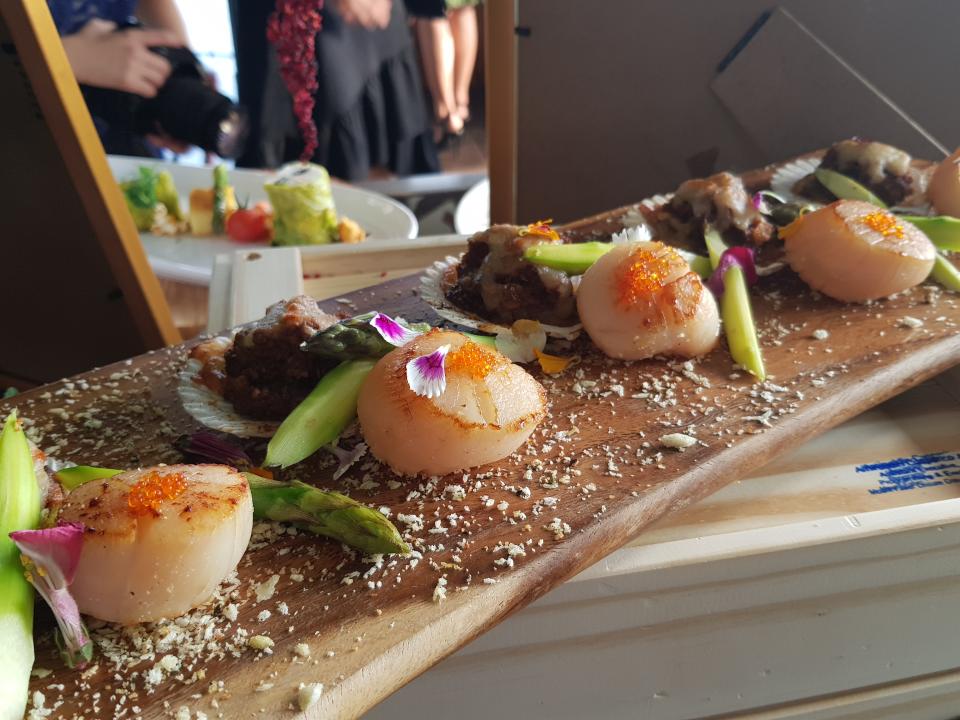Plant-based 'meat' and eco-friendly gourmets: Singapore moves toward sustainable cuisine

When it comes to Singapore’s culinary scene, the trendy word these days seems to be sustainability. From organic ingredients to steroid-free meat, there are many options for Singaporeans to select the best option to suit their dietary needs.
For restaurants and food establishments, the focus of sustainability goes beyond plating a dish for consumers. There are many aspects to look into when it comes to going green that includes consideration of resource usage, environmental impact, agricultural practices, and maintaining of stocks at sustainable levels, as well as social and economic impact.
Vegetarian ‘meat’
Come Thursday (7 March), eight restaurants in Singapore will partner with Impossible Foods to introduce plant-based meat-like products onto their menus where they will serve a variety of Western and Asian dishes.
The United States start-up is famous for their meat substitutes made from plant ingredients which look and taste like actual ground beef. Their “meaty” flavour comes from heme, an iron-containing molecule found naturally in both plants and animals. Other ingredients include soy protein, potato protein, coconut oil, sunflower oil and yeast extract.
Yahoo Lifestyle Singapore got a taste of Impossible’s meat substitute, and we can assure you that it amazingly tastes exactly like real meat.
The eight partner restaurants are Adrift by David Myers, Bread Street Kitchen by Gordon Ramsay, CUT by Wolfgang Puck, Empress, Park Bench Deli, Potato Head Singapore, Privé Orchard and Three Buns Quayside.
Impossible’s plant-based patties will be incorporated into menu items from cheeseburgers and pancakes to meatball pastas and satay sliders. They are made from heme, soy, coconut oil, potato protein, and other natural extracts to get the “meaty” flavour that Impossible Foods has been perfecting through years of research and development.
Environmentalists advocate eating less meat as meat production uses excessive resources such as land and water, and contributes to global warming because of deforestation to clear land for animal feed crops, which are unsustainable in the long term.
At a launch event on Wednesday, Dr Pat Brown, CEO and Founder of Impossible Foods, said the company chose Singapore as one of its main markets in Asia after Hong Kong due to its “diverse and innovative culinary scene”.
He added, “(Singapore) is a perfect place really, a single place to be able to introduce our product in dishes that represent the full gamut of Asian cuisine.”

Gourmet sustainability
At the upcoming World Gourmet Summit 2019 (WGS) in April, the theme around the haute cuisine festival is, as you guessed it, sustainability. This year’s edition sees the movement towards food-waste management, and a plastic-free environment where chefs and personalities from around the world will be invited to Singapore to cook up dishes across a curated gastronomic programme.
“We need to spread this important message and explore innovative approaches to reinvent additional resilient culinary practices,” said Peter Knipp, founder of World Gourmet Summit, at a press conference on Tuesday (5 March). “First and foremost, issues surrounding waste reduction, food preparation, and sourcing must be addressed in order to sustain and bolster our environment. Food should not impede sustainability. Instead, it should contribute towards sustainable development by placing sustainable culinary ethics at the forefront.”
Knipp added: “In the past, WGS press conferences talked about how many stars, how many Michelins, how many hats, who are the most famous names. Today, this is WGS 2.0. This is the future, this is about chefs who represent the best of their cultures, about products that are primarily sustainable.”
Apart from dining opportunities served up by master chefs locally and around the world, for the first time at WGS, a WGS Sustainability Forum is organised where a panel of speakers and industry experts will discuss various topics concerning issues of sustainability – from ethical and responsible sourcing, to the role each industry stakeholder plays in a bid to implement sustainable practices industry-wide.
Another sign of this growing movement is chefs seeking out ingredients that are grown in a responsible way or alternative sources that do not upset the ecosystem.
Knowing what is and what isn’t sustainable food is the first step to leading a more eco-friendly lifestyle for consumers to make informed choices, and it sure looks like Singapore is taking bigger steps to make a change for a sustainable future.
Follow Yahoo Lifestyle Singapore on Facebook.
Read also:
Impossible Foods launches meat substitutes in Singapore that taste like the real deal

